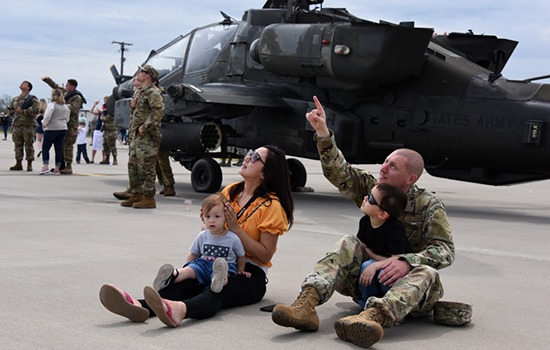What’s the NDAA? Everything You Need to Know

We hear it all the time: Congress can’t get anything done.
There’s some truth to the saying that the wheels of Congress were designed to move slowly at the best of times. It can be almost impossible for a piece of legislation to make its way through both houses and to the President’s desk. (Remember “I’m Just a Bill” from School House Rock?)
However, there’s at least one thing Congress gets done reliably every year: they pass a defense authorization.
That’s good news for military families.
The annual National Defense Authorization Act (NDAA) covers just about every aspect of military family life. Pay, benefits, TRICARE, even the commissary – anything affecting your life as a military family is addressed – and budgeted for – in the NDAA.
The NDAA is passed every year. That means that every year, military family advocates like us are able to make life a little bit better for you and your family.
So what do you need to know about the NDAA?
First, it’s a long process with a lot of players.
It starts early in the year when the Administration sends its budget request to Congress. The budget includes not just how much money the Pentagon thinks it needs, but a detailed breakdown of how they want to spend that money. It’s a window into the budget and policy priorities of the Administration and DoD officials.
After the Administration weighs in, Congress gets to work. Both the House of Representatives and the Senate have Armed Services committees, and each committee writes its own version of the bill.
During this process, advocates – like our Government Relations team – have the best opportunity to shape what’s in the final bill. All year long, we listen to military families like yours. It’s our job to make sure your needs are prioritized. Then, during the late winter and spring, we submit testimony and meet with Congressional staff to let them know what military families need.
Typically, the Armed Services committees finish their work in the late spring, at which point the bills are brought to the floor of the House and Senate for a vote.
After each chamber votes on their version of the bill, members of the House and Senate meet in conference to resolve any differences. Once they’ve reached agreement, the bills go back to Congress to vote on the final version, then to the President for his signature.
Why is this process so important for military families like yours to understand?
Because this is when your voice can be heard – and your needs met.
Every year, we have a real chance to influence policies affecting military families. But we can’t do that without your help. We rely on you to share your military family story with us and tell us what issues are important to you. Unsafe housing? Unmet childcare needs? Struggling to cover groceries?
We need to know what issues are important to you so we can tell members of Congress. Throughout the NDAA process, your voice matters and we want to hear from you.
By: Eileen Huck, Government Relations Deputy Director





